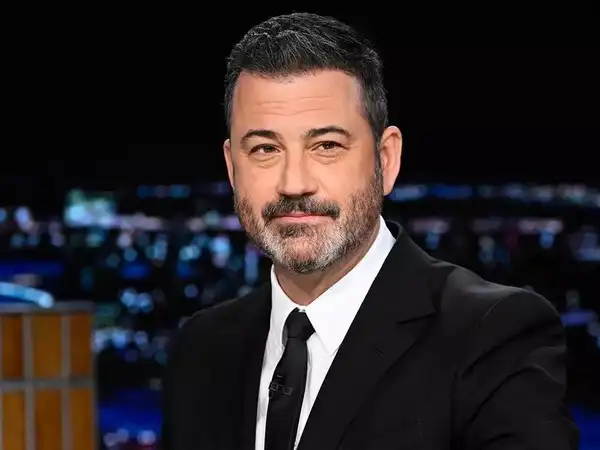Jimmy Kimmel’s late-night talk show, long a fixture of ABC’s programming, has been thrust into the middle of a growing controversy as two of the network’s largest affiliate groups have announced they will not resume airing his show. The decision, confirmed by both Sinclair Inc. and Nexstar Media Group, represents a significant setback for ABC and its parent company, Disney, at a moment when the late-night genre is already struggling to hold audience attention in an evolving media landscape.
The dispute stems from comments Kimmel made in the aftermath of conservative activist Charlie Kirk’s assassination. During one of his monologues, Kimmel offered remarks that critics labeled as insensitive and dismissive toward the grief expressed by President Donald Trump and many conservative figures. The fallout was immediate, with ABC moving quickly to suspend production of Jimmy Kimmel Live! in an effort to de-escalate tensions.
Although Disney later reversed that decision and announced Kimmel would return to the air, two of ABC’s largest affiliate groups publicly rejected that move, citing concerns over professionalism, accountability, and public trust. Their refusal now places nearly a quarter of ABC’s national reach in jeopardy, raising questions about how long Kimmel’s show can continue in its current format.
ABC’s Initial Suspension
The controversy began when ABC suspended Jimmy Kimmel Live! shortly after Kimmel’s monologue addressing Kirk’s death. In a statement, the Walt Disney Company explained that the move was not intended as permanent cancellation but rather as a pause meant to prevent “further inflaming a tense situation at an emotional moment for our country.”
Executives at Disney stressed that Kimmel’s comments were “ill-timed and thus insensitive,” but they emphasized that the host’s future with the company remained secure. Behind the scenes, conversations reportedly took place between Kimmel and Disney leadership, with both parties ultimately agreeing the show should resume within the week.
On September 22, Disney formally announced that Kimmel’s program would return on September 23, marking what the company hoped would be a quick end to the dispute.
Sinclair Pushes Back
That optimism was short-lived. Just hours after Disney’s announcement, Sinclair Inc., one of the nation’s largest owners of local broadcast stations, declared it would not resume airing Jimmy Kimmel Live! across its ABC affiliates.
In a statement, Sinclair criticized ABC’s handling of the situation and demanded further accountability:
“Beginning Tuesday night, Sinclair will be preempting Jimmy Kimmel Live! across our ABC affiliate stations and replacing it with news programming. Discussions with ABC are ongoing as we evaluate the show’s potential return.”
The company went further, outlining conditions it expected to see met before restoring the program to its late-night lineup. Specifically, Sinclair requested that Kimmel issue a direct apology to Charlie Kirk’s family and make a “meaningful personal donation” to Turning Point USA, the conservative organization Kirk founded.
“Regardless of ABC’s plans for the future of the program,” the company said, “Sinclair intends not to return Jimmy Kimmel Live! to our air until we are confident that appropriate steps have been taken to uphold the standards expected of a national broadcast platform.”
Nexstar Joins in Refusal
The pressure escalated further when Nexstar Media Group, another major operator of ABC affiliates, echoed Sinclair’s stance. Nexstar explained that it, too, had made the decision to preempt Kimmel’s program after his remarks, and it would not be reinstating the show without stronger assurances from ABC.
“We made a decision last week to preempt Jimmy Kimmel Live! following what ABC referred to as Mr. Kimmel’s ‘ill-timed and insensitive’ comments at a critical time in our national discourse,” Nexstar’s statement read.
“We stand by that decision pending assurance that all parties are committed to fostering an environment of respectful, constructive dialogue in the markets we serve.”
With both Sinclair and Nexstar now refusing to air Kimmel’s program, ABC faces a major disruption. Together, the two groups represent close to 25% of ABC’s nationwide reach, meaning nearly one in four potential viewers will not have access to Jimmy Kimmel Live! on traditional broadcast television.
Streaming Remains an Outlet
Despite the affiliates’ decisions, ABC has confirmed that Kimmel’s show will still be available nationwide via Disney-owned streaming platforms. This ensures that fans who want to continue watching can still access the program digitally.
However, streaming alone does not solve the underlying issue. Affiliate carriage remains critical for late-night programming, which relies heavily on linear TV viewership. Losing a quarter of ABC’s affiliate reach not only reduces exposure but also potentially lowers advertising revenue tied to live broadcasts.
The Broader Political Context
The Kimmel controversy has unfolded against the backdrop of heightened political tensions in the United States. The assassination of Charlie Kirk, a conservative figure with close ties to the Trump administration, shocked the political world and intensified an already divided national atmosphere.
Many on the right saw Kimmel’s comments as emblematic of Hollywood’s dismissiveness toward conservatives, while supporters argued that suspending his show was an overreaction and a violation of free speech norms.
This divide has fueled broader debates over the role of late-night hosts in shaping political discourse. Once primarily devoted to comedy and celebrity interviews, late-night television has increasingly become a forum for sharp political commentary. Hosts like Kimmel, Stephen Colbert, and others often use their platforms to critique political leaders, a shift that appeals to some viewers while alienating others.
Affiliate Power and Disney’s Dilemma
The refusal by Sinclair and Nexstar underscores the unique role affiliates play in American broadcasting. While Disney owns ABC, it does not directly control all local stations that carry the network’s programming. Independent companies like Sinclair and Nexstar operate dozens of ABC affiliates nationwide, giving them leverage over what content makes it to air.
Disney’s decision to reinstate Kimmel reflects confidence in his continued drawing power. Yet, the affiliates’ resistance signals a potential power struggle that could have long-term consequences for ABC’s late-night strategy.
If the dispute remains unresolved, ABC may face pressure to either negotiate with affiliates or consider restructuring how late-night programming is distributed, with streaming playing a more central role.
Demands for Accountability
Both Sinclair and Nexstar framed their refusals in terms of accountability and professionalism. By requesting apologies, donations, or commitments to respectful discourse, the companies positioned themselves as defending community standards and public trust.
Whether these demands are negotiable remains unclear. Kimmel has not issued a public apology beyond acknowledging that his comments struck some viewers as insensitive. Disney, for its part, has avoided direct confrontation with affiliates, opting instead for broad language about thoughtful conversations and moving forward.
What’s Next for Jimmy Kimmel?
For Kimmel, the immediate future is uncertain. His show will continue streaming, but its absence from a quarter of ABC’s affiliate markets is a blow to its reach and cultural influence.
Some media observers suggest that Kimmel may have to issue a direct statement addressing the controversy more directly if he hopes to regain access to the full ABC audience. Others believe the affiliates may relent over time, especially if public interest in the controversy fades.
At the same time, the incident highlights the fragility of late-night television in 2025. With ratings already declining industry-wide, controversies like this one risk accelerating the genre’s decline. Younger viewers, in particular, increasingly consume late-night content in clips on social media rather than tuning in to broadcast airings.
Conclusion
The standoff over Jimmy Kimmel’s return is more than just a dispute over one host’s comments—it reflects the shifting dynamics of media, politics, and public accountability in a polarized era. For ABC and Disney, the challenge is balancing creative expression with affiliate relationships and audience trust. For Sinclair and Nexstar, it is about asserting their influence while navigating the political sensitivities of their markets.
What happens next will depend on whether compromise can be reached. Until then, Jimmy Kimmel Live! will continue in a fragmented fashion—streaming online, but absent from nearly a quarter of the country’s ABC affiliates.
The controversy underscores a hard truth: in today’s climate, even comedy is not immune from the political battles shaping American life.

James Jenkins is a celebrated Pulitzer Prize-winning author whose work has reshaped the way readers think about social justice and human rights in America. Raised in Atlanta, Georgia, James grew up in a community that instilled in him both resilience and a strong sense of responsibility toward others. After studying political science and creative writing at Howard University, he worked as a journalist covering civil rights issues before dedicating himself fully to fiction. His novels are known for their sharp, empathetic portraits of marginalized communities and for weaving personal stories with broader political realities. Jenkins’s breakout novel, Shadows of Freedom, won national acclaim for its unflinching look at systemic inequality, while his more recent works explore themes of identity, resilience, and the fight for dignity in the face of oppression. Beyond his novels, James is an active public speaker, lecturing at universities and participating in nonprofit initiatives that support literacy and community empowerment. He believes that storytelling is a way to preserve history and inspire change. When not writing, James enjoys jazz music, mentoring young writers, and traveling with his family to explore cultures and stories around the world.









